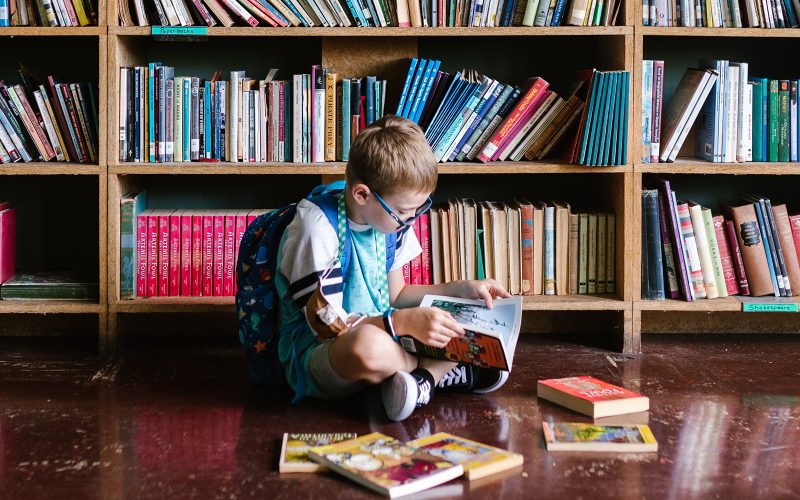COVID-19 gave a boost to urban homeschooling
BY LANCE IZUMI
Students in urban traditional public schools have struggled for years, but recent state and national test-score results show that student performance fell even more in the wake of the COVID pandemic, which is why so many urban parents have decided to homeschool their children.
One of the cities in California with the biggest falloffs in student achievement is Stockton in the Central Valley, 40 miles south of Sacramento. In 2019, 33 percent of Stockton students met or exceeded standards on the state math test. By 2022, only 15 percent of Stockton students met or exceeded the state standards in math.
In reading, the drop was just as dramatic, with 43 percent of Stockton students meeting or exceeding standards on the state reading test in 2019, but only 27 percent hitting that mark in 2022. Other California cities saw drops as well, with, for example, just 28 percent of Los Angeles students meeting or exceeding standards on the state math test in 2022 versus 33 percent in 2019.
The results on the 2022 National Assessment of Educational Progress exam, often referred to as the nation’s report card, also showed significant declines in student performance. In California, the proportion of eighth graders performing at the proficient level on the NAEP math exam fell dramatically from 29 percent in 2019 to 23 percent 2022.
The decline affected all demographic groups in California. For example, even among non-low-income middle-class eighth graders, the proportion achieving proficiency on the NAEP math exam dropped from 50 percent in 2019 to 41 percent in 2022.
For academic and social-emotional reasons, parents have decided to homeschool their children. The Los Angeles Times has reported that California parents are pulling their children out of school “because they’ve lost confidence in the education system’s ability to meet their needs.”
For instance, the Times profiled an eight-year-old Los Angeles girl who has dyslexia, but who was forced to sit in front of a computer screen all day because her school was closed during the pandemic. The young girl “cried often.”
Her mother felt the school was not doing enough and could not bear to watch her daughter languish, so she took her out of school. “I never wanted to homeschool my own kids,” said the mom, “but I’m so glad we’ve done it.”
A Latino parent interviewed by the Times said that when she started to homeschool her children, “I felt like I was doing something impactful for my family. … We felt the best way for our children to learn about the world and themselves was in the world itself,” she explained. “A classroom has limitations.”
Modern homeschooling also offers parents many different types of options for parents and their children. In Sacramento, the Pursuing Academic Choices Together homeschool academy at Natomas Charter School, which is profiled in the 2021 Pacific Research Institute book The Homeschool Boom, offers enrichment classes on its campus that homeschooled students can take one or two days a week.

In addition, it gives parents and their children access to the academy’s free curriculum library. Alicia Carter, the head of the PACT academy, says, “People are starting to consider homeschooling as a viable option, not a fringe option” and therefore “homeschooling has become much more diverse religiously, ethnically and socioeconomically all over the country.”
Testifying to the popularity of homeschooling, Carter noted that her academy had to hold a lottery for admissions for the 2021-22 school year for the first time in its history.
The increase in popularity of homeschooling is a nationwide phenomenon. According to the U.S. Census Bureau, during the pandemic the proportion of homeschooling families doubled from 5 percent to 11 percent. Among African-American families, the rate increased five-fold, from 3 percent to 16 percent.
In Detroit, which has battled low student achievement for many years, many Motor City parents are turning to homeschooling. Bernita, an African-American mom in Detroit, told The New Yorker that she challenged the city’s school superintendent, saying: “Parents are not deciding to take their children out because of COVID. Parents are doing (homeschooling) because education has failed children in this city forever.”

During the pandemic, Bernita received a grant from the National Parents Union to start a homeschooling collective called Engaged Detroit. She hired other African-American homeschool moms to coach other parents in ways to best homeschool their children. Also, she purchased laptops, software and other supplies for new homeschool parents.
“If school won’t reinvent education, we have to reinvent it ourselves, and our goal at Engaged Detroit is to make sure families have tools so that choice is in their hands,” Bernita says. Because homeschoolers are not rigidly tied to a one-size-fits-all curriculum like in the regular public schools, parents are able to use their flexibility to meet the needs and interests of their children.
In Bernita’s case, her daughter Victoria was bored by some subjects, such as chemistry, and started to lose interest in her studies. As a homeschooler, however, Bernita could ask her daughter what subjects interested her and, based on her daughter’s preferences, she was able to change her course of study.
Bernita switched forensic science for chemistry, a change that still met state science standards, and Victoria loved it. Also, Victoria was able to learn math concepts, which had previously puzzled her in school, at home using online tools such as the popular Khan Academy videos.
In public school classes, Victoria would pretend to understand math concepts that she did not comprehend. However, at home she could pause the Khan Academy videos, rewind them, review her notes, and use other tools such as Google to get the meaning of words she did not understand. Once she understood a concept, Victoria would proudly proclaim, “Okay, I’m smart.”
Jeanetta Riley, another Detroit African-American mom interviewed by The New Yorker, said, “A lot of Black people are struggling.” Riley’s daughter was performing two grade levels behind in math when she decided to join a local homeschool parents group. Like Bernita, Riley used Khan Academy and other learning tools for her daughter. As a result, her daughter is now achieving at grade level and is happier than ever.
As Khadija Ali-Coleman, co-founder of the growing Black Family Homeschool Educators and Scholars, observed: “COVID-19 was the publicist for homeschooling.” And with the success and satisfaction that many parents are experiencing with teaching their kids at homes, in contrast to the massive failures of public schools in many cities, expect homeschooling to be a key wave of the future in urban communities around America.
Lance Izumi is senior director of the Center for Education at the Pacific Research Institute. He is the author of the new PRI book The Homeschool Boom: Pandemic, Policies, and Possibilities.

